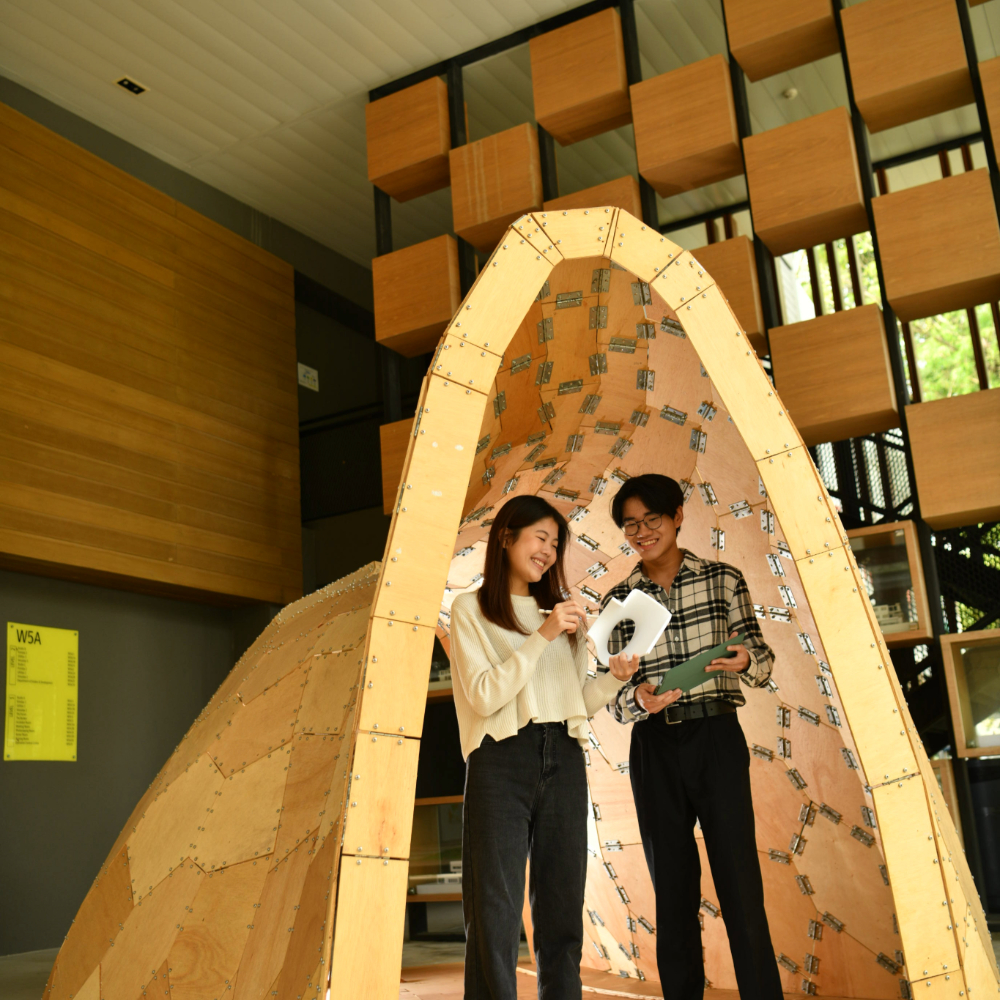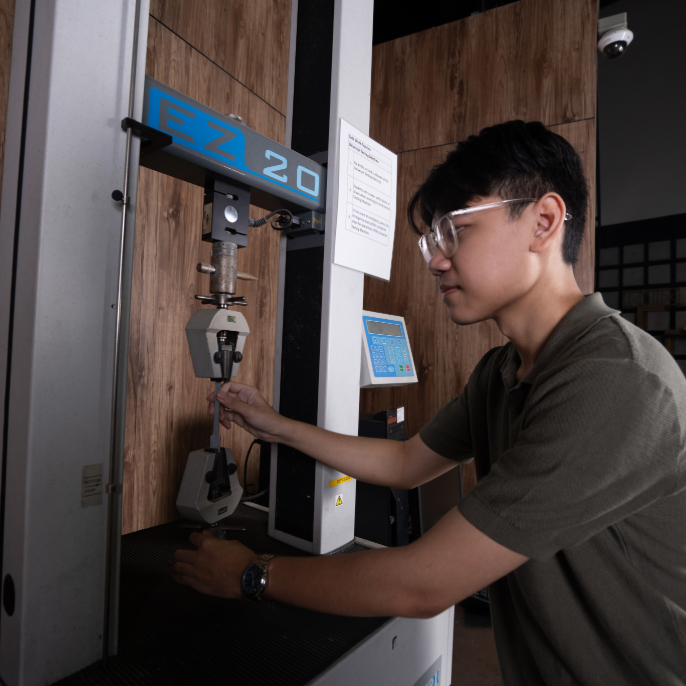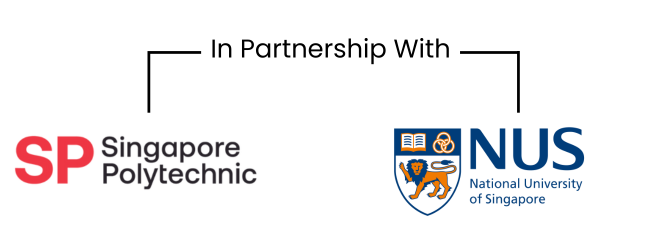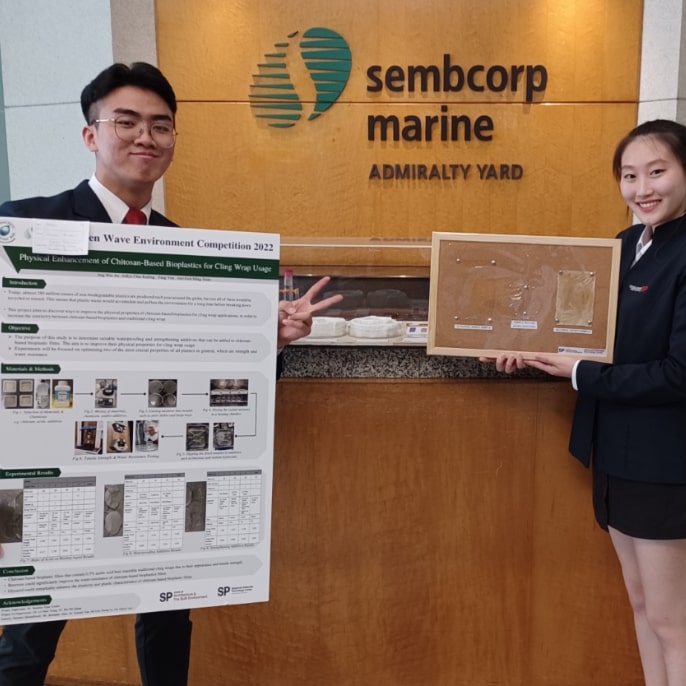Curious about how megastructures like highways and skyscrapers are built? Master sustainable design, smart technologies, energy optimisation, structural analysis, and project management with SP’s Diploma in Civil Engineering. With booming projects like Changi Airport Terminal 5 and new MRT lines, theBuilt Environment industry offers vast opportunities. As SP’s first engineering diploma with a legacy of excellence, you’ll be well-equipped to contribute to thriving, sustainable urban environments.
In addition, you will graduate with a Minor upon the completion of a suite of related elective modules. SP offers 6 Minors for you to choose from:
Please note: Course structure is subject to change.
Electives
The SP elective framework offers students options to pursue their passion and/or meet different career needs, and is an integral part of the holistic education we seek to provide to our students.
Learn about SP Elective Framework
The Common Core Curriculum (CCC) prepares you for a changing world with essential human and digital skills. Through its 10 modules, the CCC also provides a wide learning experience to examine local and global issues based on the Sustainable Development Goals (SDGs). These modules help you understand real-world issues and the impact on different communities, and equip you with skills to create a better, sustainable Singapore and world.
Learn about Common Core Curriculum

What are the eligibility requirements for civil engineering?
You must meet the following criteria to qualify for the Diploma in Civil Engineering:
If you enjoy problem-solving, critical thinking, and analysis and are passionate about shaping cities and creating a better built environment, civil engineering is your path. This diploma is ideal for those who want to work on large-scale projects and contribute to urban development with innovative, sustainable solutions.
SP offers many scholarships to recognise talent and service, from Year 0 to after graduation. These scholarships provide tuition fee waivers and chances to represent SP. They are awarded for academic excellence, contributions to arts or sports, and community service. Edusave awards and external sponsorships are also available.
Click here to find the full list of scholarships available

Civil Engineering at SP prepares me for the future.
At SP, the Dream Builders Lab allows for concrete material studies, while the Environmental Lab has equipment for hydrology research and water testing with advanced analytical instruments. The 3D concrete printer (upcoming) equipped with robotic arm at Dream Builders Lab allows you to design and print structures or artistic sculptures.
The Geomatics Lab offers hands-on experience of surveying instruments for data acquisition and mapping, and the Fabrication Workshop supports you on 3D printing and laser cutting needed for your projects and module studies.
Civil engineering at SP prepares me for Singapore.
As future civil engineers, your skills are in high demand. In 2025, advancements in AI, automation, and modern materials are reshaping the industry.
SP prepares you for emerging roles in green building and smart city development. With major projects like Changi Airport Terminal 5 and new MRT lines, Singapore’s booming construction sector offers exciting career prospects.
Civil engineering at SP prepares me for the world.
Civil engineering covers diverse fields, including structures, water technology, and transportation. Gain practical skills in Reinforced Concrete (RC) and Steel Design, Building Information Modelling (BIM), precast concrete, and sustainability.
These competencies make you versatile and adaptable, preparing you for the dynamic and evolving global built environment.
SP offers 22-week/Year-Long internships at various organisations, including startups, SMEs, and government agencies.
Civil engineering students have interned at places like the Land Transport Authority (LTA), Housing Development Board (HDB), ARUP, JTC Corporation, and Samwoh Corporation. These internships provide the opportunity to make a real impact.
Internships offer valuable connections, industry insights, and job opportunities, shaping your career path with hands-on experience. Above that, SP provides coaching to boost your confidence and employability. Multiple internships across industries broaden your perspective, leading to higher starting salaries, industry exposure, and professional growth through meaningful work, learning opportunities, and mentorship.
Overseas exposure helps broaden your horizons. Understanding globalisation and working with diverse cultures is important in a global city like Singapore. Civil engineering students and alumni have experienced international immersion programmes and competition, enriching their worldviews and career prospects. Some CCAs also offer opportunities for students to represent Singapore abroad and gain international experience.
You will have opportunities to participate in competitions such as World Skills Singapore, seminars, overseas community service projects, and study trips, all while being equipped with civil engineering Technical Skills & Competencies (TSCs) and Critical Core Skills (CCS) aligned with the Skills Framework for the Built Environment. These skills and experiences will enable you to stay competitive in your future career.
With your SP diploma, you can gain direct entry into the second year of civil engineering degree programmes at the Nanyang Technological University (NTU) or National University of Singapore (NUS), as well as pursue a civil engineering degree at the Singapore Institute of Technology (SIT). Alternatively, you can pursue a degree in Building & Project Management at the Singapore University of Social Sciences (SUSS) or complete a related degree in two or three years in countries such as Australia or the United Kingdom.
Advance your career in civil engineering with top industry certifications. These keep you updated with industry best practices.
If you’re preparing for university and want to make the most of your diploma time, an SP diploma can let you fast-track your education by 0.5-2 years!
Accelerate your education ambitions through the SP Accelerated Pathway Programmes (APP)


